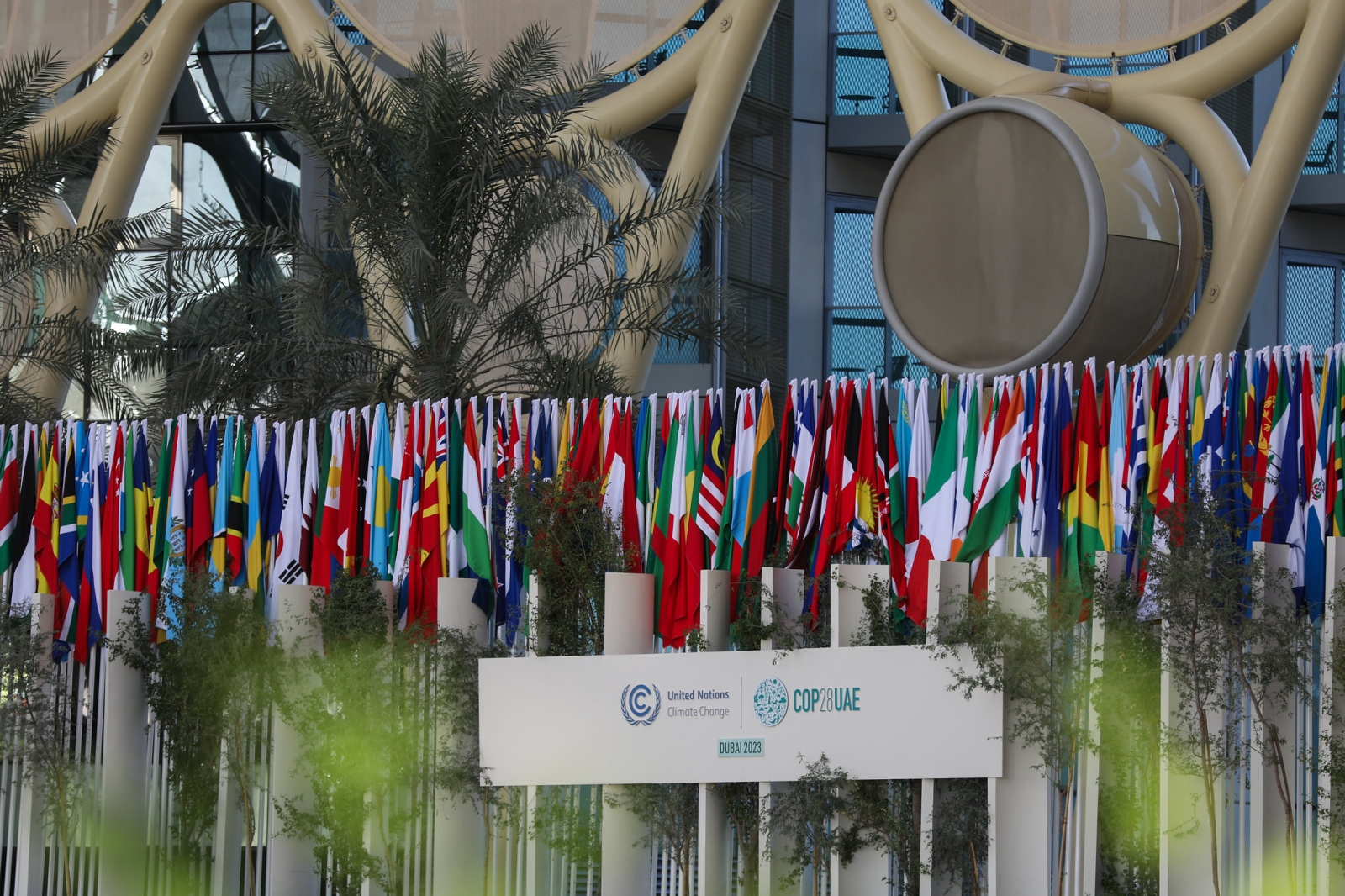A milestone in climate action, with the hope that global commitment swiftly translates into tangible measures: On Friday, December 1st, the COP28 Presidency announced the historic signing of a declaration on agriculture, food, and climate action by over 130 world leaders.
Beyond the declaration, the mobilization of over 2.5 billion dollars in funding to support food security while simultaneously combating climate change was announced and a new partnership between the United Arab Emirates and the Bill and Melinda Gates Foundation has been forged to promote innovation in food systems in response to climate change.
The signing of the declaration
The Emirates Declaration on Sustainable Agriculture, Resilient Food Systems, and Climate Action was announced at a special session of the World Climate Action Summit (WCAS) led by President Joko Widodo of Indonesia, Italian Premier Giorgia Meloni, Prime Minister Naomi Mataʻafa of Samoa Fiamē, and U.S. Secretary of State Anthony J. Blinken. At the core of the declaration are the reduction of global emissions and the protection of farmers who are on the front lines of climate change.
“Today signals a turning point, embedding sustainable agriculture and food systems as critical components in both dealing with climate change and building food systems fit for the future. Together we will deliver lasting change for families, farmers and the future", said H.E. Mariam bint Mohammed Almheiri, UAE Minister of Climate Change and Environment and Food Systems Lead of COP28. The same minister announced that more than $2.5 billion will be invested to support the food and climate agenda.
He was echoed by Edward Davey, Head of the UK Office of the World Resources Institute Europe, who, commenting on the signing, said: "The declaration sends a powerful signal to the nations of the world that we can only keep the 1.5 degree goal in sight if we act fast to shift the global food system in the direction of greater sustainability and resilience".
The contents of the declaration
Adapting food systems to the ongoing climate changes, with particular attention to small farmers and indigenous groups, improving water management in agriculture, protecting and restoring soil and ecosystems are among the key points outlined in the declaration. Additionally, the declaration encompasses goals such as reducing food losses and waste and promoting more sustainable aquaculture. Also included in the objectives of the declaration are encouraging changes in consumption, with a focus on the Global North, and ensuring and enhancing access to nutrition, with specific attention to the Global South.
There is a vague mention of the fact that “new technologies that reduce emissions should be encouraged”, but the declaration does not mention fossil fuels, an omission that has disappointed some.
According to World Bank calculations, the 134 countries that signed the Declaration account for more than 5.7 billion people, 70% of the food we eat, nearly 500 million farmers, and 76% of all emissions from global food systems, or 25% of total global emissions.
According to the intentions of the signatories, the declaration aims to strengthen food systems, build resilience to climate change, reduce global emissions, and contribute to the global fight against hunger, in line with the United Nations' Sustainable Development Goals (SDGs). The declaration, the first of its kind for the COP process, underscores the need for collective action on climate change, which negatively impacts a significant portion of the global population, particularly those living in vulnerable countries and communities.
The partnership between the United Arab Emirates and the Bill & Melinda Gates Foundation
In parallel, the United Arab Emirates and the Bill & Melinda Gates Foundation have launched a $200 million partnership to develop innovations that will help smallholder farmers in sub-Saharan Africa and South Asia strengthen their resilience and capacity to adapt to climate change. The focus of the partnership is food systems, agricultural innovation, and climate action, focusing on agricultural research, dissemination of agricultural innovations, and funding technical assistance to implement the declaration.
The announcement was made at the Global Climate Action Summit by the foundation's co-chair, Bill Gates, with Mariam bint Mohammed Saeed Hareb Almheiri, UAE Minister of Climate Change and Environment. Gates urged world leaders to make agriculture a priority in global climate finance initiatives and to support the Global Agricultural Research Network (CGIAR).
Regenerative agriculture at COP28
COP28, with the World Business Council on Sustainable Development (WBCSD) and Boston Consulting Group (BCG), and with the support of the UN Climate Change High-Level Champions, launched the Action Agenda on Regenerative Landscapes.
This initiative will see leading organizations in the food and agricultural sector channel their efforts to scale up regenerative agriculture, transitioning to 160 million hectares managed under regenerative agricultural practices by 2030. According to the agenda, an investment of 2.2 billion dollars will be directed towards this goal, involving 3.6 million farmers worldwide.
In addition, the UN Climate Change High-Level Champions, in collaboration with Non-State Actors, including farmers, indigenous peoples, consumers, cities, and businesses, have launched a call to action to transform food systems for people, nature, and climate, in support of the declaration and to underscore the urgent need for action on food systems by all actors.
The next pivotal event for the food and agriculture sector at COP28 is now set for Sunday, December 10th with Food, Agriculture and Water Day.
This article is also available in Italian / Questoa articolo è disponibile anche in italiano



